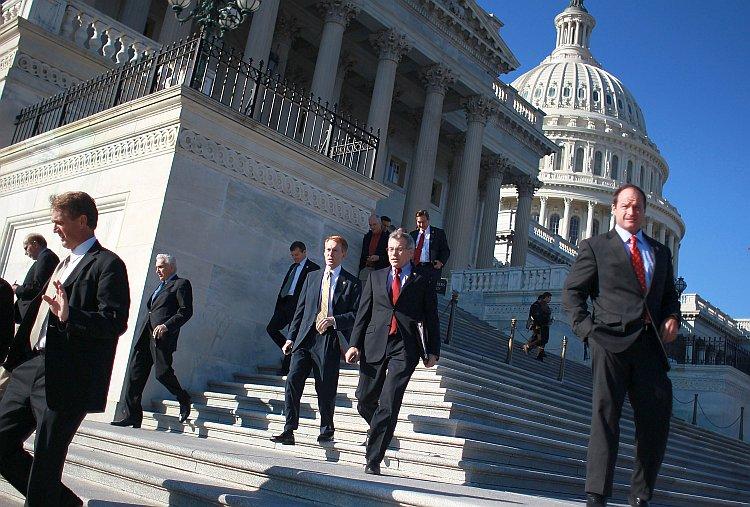WASHINGTON—The U.S. supercommittee has failed to meet its deadline for securing an agreement on reducing the U.S. deficit.
“After months of hard work and intense deliberations, we have come to the conclusion today that it will not be possible to make any bipartisan agreement available to the public before the committee’s deadline,” Rep. Jeb Hensarling (R-Texas) and Sen. Patty Murray (D-Washington), said a statement Monday afternoon.
Although the deadline for the deficit deal is technically midnight Nov. 23, under the 2011 Budget Control Act, which created the committee, the proposal must be made public 48 hours ahead of the final vote.
The supercommittee’s failure to agree on strategies to cut U.S. debt will be “a huge opportunity missed,” says Alice Rivlin, a former director of the White House Office of Management and Budget.
The 12-member committee, officially titled the Joint Select Committee on the Deficit Reduction, was established in August, with the mission to shave a minimum of $1.2 trillion dollars off spending over the next decade. In the event of the committee’s failure, automatic cuts were to take place—largely in defense and health.
President Barack Obama said he will “veto any effort to get rid of those automatic spending cuts to domestic and defense spending. There will be no easy off ramps on this one,” during a Nov. 21 speech at the James S. Brady Press Briefing Room at the White House.
Rivlin, a former vice chair of the Federal Reserve Board, says $1.2 trillion was never going to be enough to get the U.S. economy on a sustainable track, and what was ultimately needed was $4 trillion to $5 trillion.
“The $1.2 trillion does not stabilize the debt; the debt would still be growing faster than the economy can grow and that is a definition of a bad problem,” she told a forum at the Brookings Institute on Monday.
Going Big
The supercommittee had the federal power to achieve a Go Big strategy in terms of major reforms, one that could have reined in the deficit to a sustainable level, Rivlin said.
This would have required both, curbing the growth of entitlement programs like Medicare and Social Security and reforming the tax code to raise more revenue.
“Those two things have to be part of the solution.”
Rivlin said she had testified before the supercommittee and recommended the Go Big strategy.
“A lot of us thought that that big scenario was easier than the small one and it certainly got a lot of attention,” she explained.
Indeed, the idea did gain support with over 100 representatives signing a letter recommending a Go Big strategy. The letter was presented to the committee by Rep. Heath Shuler (D-N.C.) and Rep. Mike Simpson (R-Idaho).






